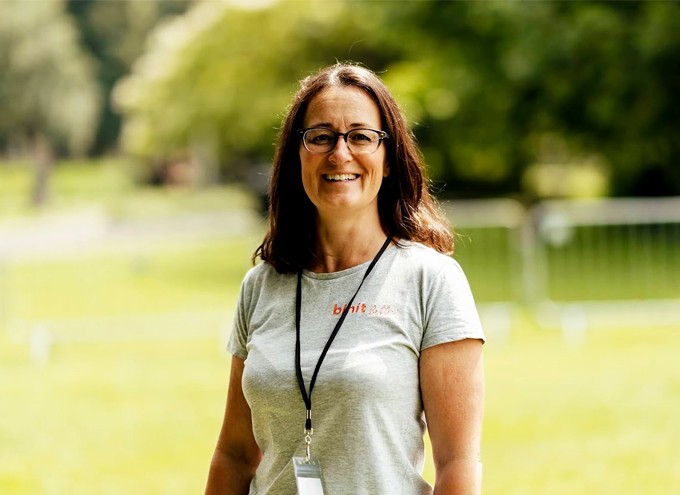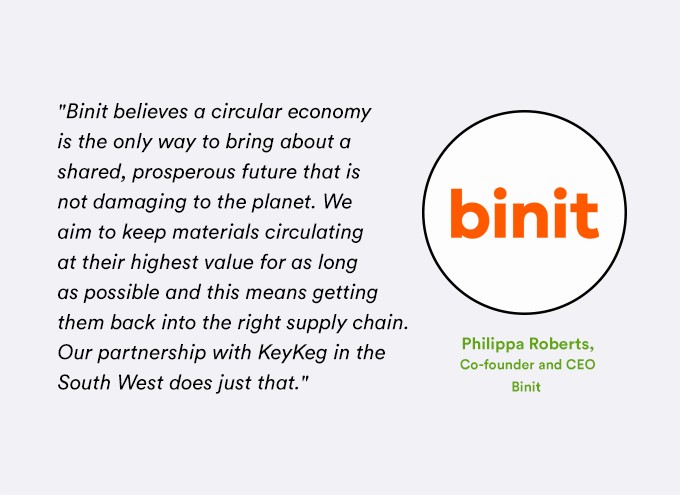Binit joins UK Return Network for KeyKegs | KeyKeg
Binit joins our UK Return Network to boost KeyKeg recycling in the South West
Binit is now rolling out empty-KeyKeg collections from its base in Clyst Honiton, near Exeter, as well as arranging convenient drop-off points across the region.
Recycling expert Binit promotes waste as a valuable ‘resource in the wrong place’, which the Binit team then help south-west businesses return to the right place: the circular economy. To support these sustainability ambitions, Binit has launched empty-KeyKeg collections to further improve hospitality-industry sustainability.
Binit is well-positioned in the recycling market to meet the growing need for smart waste-management solutions that maximise sustainability and strengthen the circular economy. By joining our Return Network, Binit is responding to ongoing requests from pubs, bars and breweries for sustainable KeyKeg disposal in the South West.
By returning all their empty KeyKegs through Binit, beverage producers and hospitality professionals from Bristol to Devon, Somerset to Cornwall, and everywhere in between, can help protect the environment. As more empty Kegs are collected, the amount of recycled material in each new KeyKeg will steadily increase, which conserves precious natural resources.
Binit does more than help industry ‘waste nothing’; it thinks beyond the bin to offer customers a unique, optimised service and consultancy, helping them better understand their waste-management profile. Tracking waste through ongoing audits also brings customer net-zero emissions within reach.
Philippa Roberts, Co-founder and CEO, Binit: "Binit believes a circular economy is the only way to bring about a shared, prosperous future that is not damaging to the planet. We aim to keep materials circulating at their highest value for as long as possible and this means getting them back into the right supply chain. Our partnership with KeyKeg in the South West does just that."
Binit minimises its carbon footprint by using other businesses’ vehicles to collect empty plastic Kegs – it has no fleet of its own. It then assembles, crushes and bundles the empty Kegs into bales for us to collect. We then shred, separate and sort the different plastics on an automatic recycling line to recover the raw materials. As much circular material as possible is used to produce new KeyKeg parts, while the remainder is recycled for other uses.

